Search Images
Browse Content (p. 1053)
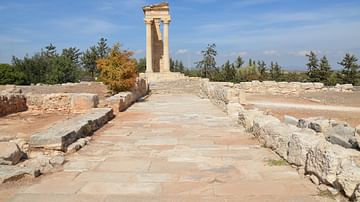
Image
Temple of Apollo Hylates in Cyprus
The Sanctuary of Apollo Hylates lies two miles west of Kourion near Limassol in Cyprus. Here Apollo was worshipped as the god of the woodlands. This large sacred complex, one of the most important religious centres on the island of Cyprus...

Image
Agios Georgios, Cyprus
An early Christian basilica in Agios Georgios (Cyprus) dating back to the 6th century CE. It is adorned with lovely mosaic floors depicting animals and sea-creatures. Located near the village of Pegeia, it was the site of a late Roman and...
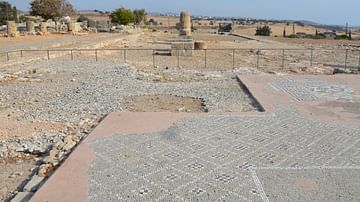
Image
Palaepaphos, Sanctuary of Aphrodite in Cyprus
The Sanctuary of Aphrodite (Palaepaphos) is located in the village of Kouklia in Cyprus. Palaepaphos was one of the most important religious centres of the ancient Greek world, established in the 12th century BCE. Already famous in the time...
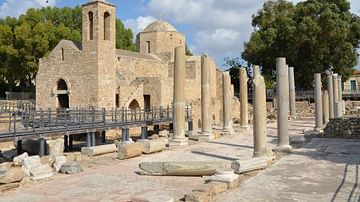
Image
Panagia Chrysopolitissa Church, Cyprus
The Byzantine basilica of Panagia Chrysopolitissa was built at the end of the 4th century CE and destroyed in the middle of the 7th century CE. It the largest basilica ever excavated in Cyprus.
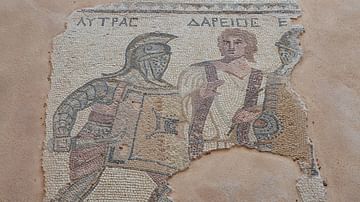
Image
Mosaic with Gladiators and Referee
Mosaic depicting two gladiators being separated by a referee, late-3rd century CE.
House of the Gladiators, Kourion, Cyprus.

Image
Gladiator Mosaic from Kourion, Cyprus
Mosaic depicting two gladiators in combat. Their names in Greek are listed above them: Margarites (left) and Hellenikos (right), late-3rd century CE. House of the Gladiators in Kourion, Cyprus.
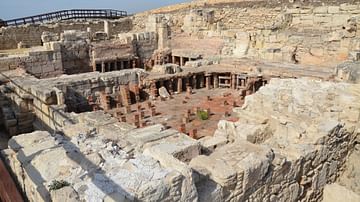
Image
Bath Complex in Kourion, Cyprus
The tepidarium (warm room) and the caldarium (hot room) of the Roman public baths in Kourion, Cyprus.
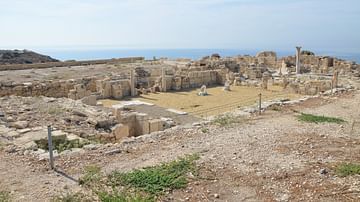
Image
Early Christian Basilica in Kourion, Cyprus
The Early Christian Basilica dating to the beginning of the 5th century CE, Kourion, Cyprus.
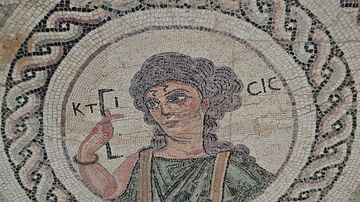
Image
Byzantine Mosaic with a Personification of Ktisis
Byzantine mosaic emblema in the House of Eustolios in Kourion (Cyprus) depicting a young woman in a medallion holding a measuring instrument equating to a Roman foot. The Greek inscription identifies her as Ktisis, the personification of...
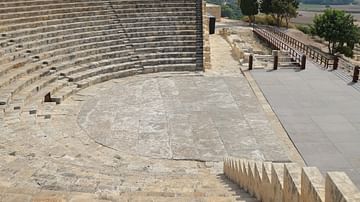
Image
Roman Theatre in Kourion, Cyprus
The Roman theatre of Kourion in Cyprus was built over an earlier Hellenistic theatre. It was remodelled in the 1st and 2nd centuries and in the 3rd century, it was used as an arena for gladiatorial combats.